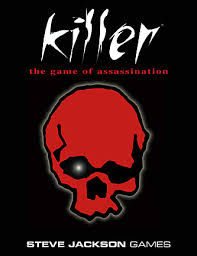记忆方法
将“killer”与强烈的情感或印象深刻的事物关联。例如,想象一个“k”字像一把锋利的刀,划过“iller”,暗示它代表一个有巨大影响力或极度出色的人或事物,如一个“杀手级”英雄或产品。这种视觉联想有助于记忆。
以上内容由AI生成, 仅供参考和借鉴
英语词源
- killer (n.)
- late 15c., agent noun from kill (v.). But a surname, Ric[hard] Le Kyller is attested from 1288. Figurative use from 1550s. Meaning "impressive person or thing" is by 1900 (as an adjective, 1979); reduplicated form killer-diller attested by 1938. Killer whale is from 1725; killer instinct is attested from 1931, originally in boxing.
权威例句
- 1. The vital clue to the killer's identity was his nickname, Peanuts.
- 查明杀手身份的重要线索是他的外号叫“花生”.
- 2. So if it's not there now, the killer has it. Right?
- 如果它现在不在那里,就在凶手那里。是吧?
- 3. Police believe the killer punched her to death with his bare hands.
- 警方认为她是被凶手活活用拳头打死的。
- 4. It's a film about a serial killer and not for the faint-hearted.
- 这部电影是讲一个连环杀手的,不适合胆小的人看。
- 5. Swanson persuaded Hubley to work undercover to capture the killer.
- 斯旺森说服赫布利去做卧底以便将凶手抓获。
